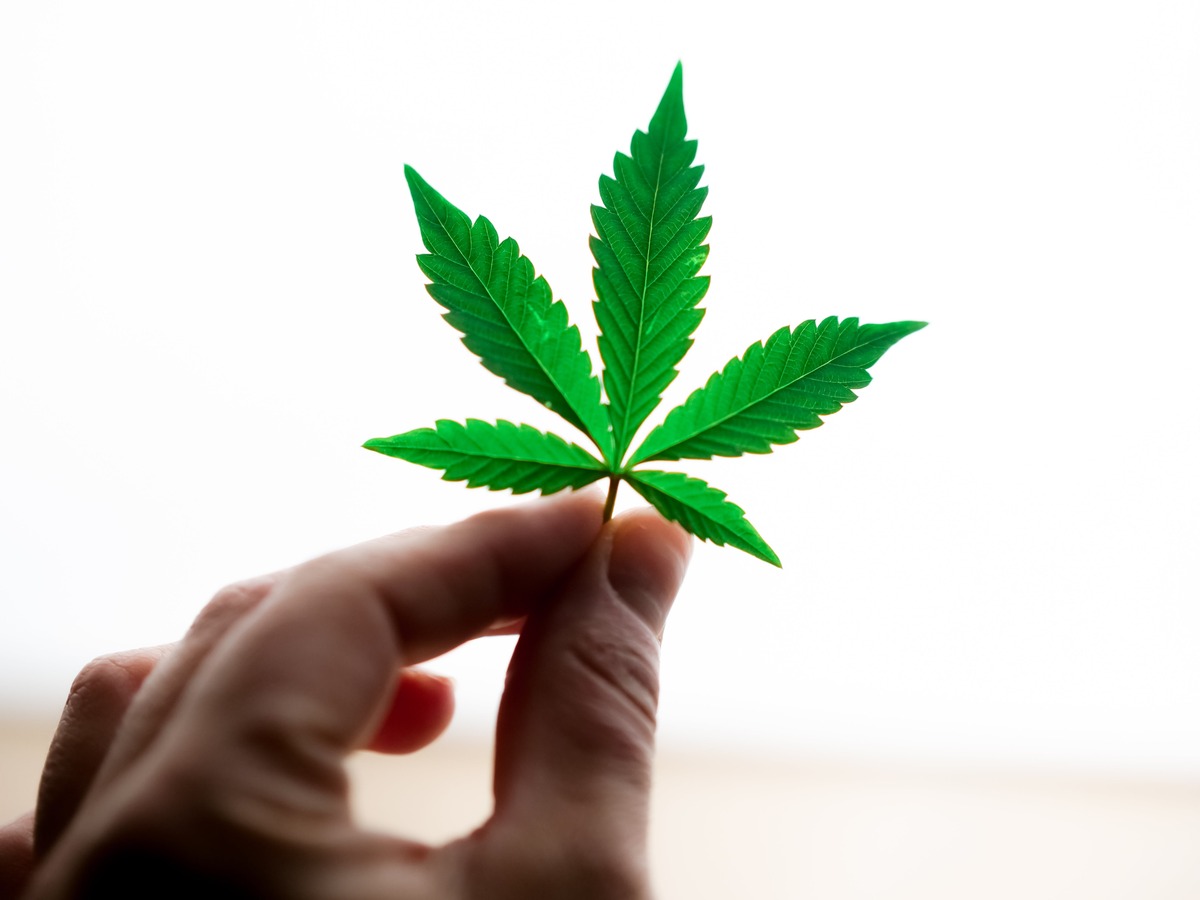A rich 2023 year for the world of cannabis and CBD
The world of CBD and cannabis is constantly evolving. As we approach the beginning of 2024, this is an opportunity to look back at the various events and changes that have taken place over the months so far, in Switzerland, France and in the rest of the world.
As we've already mentioned, the world of CBD and cannabis is constantly on the move, and keeping up with it can sometimes be tricky. That's why we've put together a little compilation of everything that's happened around the world in 2023. This way, you can get a better idea of the evolution of CBD, the laws and events that affect it, and the new products that have arrived or left the market.
Launch of cannabis pilot projects in Switzerland
A number of things happened in Switzerland during the year, starting with the launch of new pilot projects across the country to test the regulated sale of cannabis for recreational use. To this end, a number of shops have opened in major cities to supply registered and selected customers with THC-based products ranging from flowers for smoking to resin. The aim here for the State is to conduct a study to see what the impact of legalising cannabis would be, with a view to block the black market and protecting consumers' health with safer, better-quality products.

It should be noted that these new shops are not-for-profit. All profits are then used for prevention and safety. At the moment, if we take the example of the shop that has just opened in Lausanne, only 250 people registered with the project can buy products there. The quantity they can buy there must not exceed 10 grams, and their consumption per month must also not exceed this limit. The cannabis supplied is organic and comes from the Vaud region, although the exact location of cultivation is kept secret for security reasons. The stocks available in shop are also limited to avoid any risks. The project is inspired by a similar concept being tested in Quebec. Several other cities have also embarked on the adventure, including Berne, Biel, Lucerne, Basel, Zurich and Geneva. It is to be hoped that this test will prove sufficiently conclusive for the government to initiate the legalisation of cannabis in the future.
The stunning arrival of HHC
It's hard not to have heard of it, and the word was on everyone's lips this spring: HHC. A synthetic cannabinoid first created in 1947, it made a remarkable entry onto the European market this year. Far more potent than CBD, it has quickly won over consumers. But there's still too much we don't know about HHC, including its side effects. And the fact that it's not natural doesn't help either. The various governments have therefore more or less quickly taken the decision to make it illegal to sell, in order to protect the health of the population, a decision welcomed by many CBD professionals, including B-Chill. In June, the French National Agency for the Safety of Medicines and Health Products finally included CBD and 2 other derivatives on its list of narcotics. Closer monitoring of these products has also been introduced.
Meanwhile in Canada, police data has shown that since the legalisation of cannabis, incidents between police and young people have fallen. Since Canada's new cannabis law came into force in 2018, a drop of more than 50% in offences has been recorded. "The results suggest that the impact of the Cannabis Act on reducing cannabis-related crime among youth is strong, supporting the objectives of the Act to reduce cannabis-related criminalisation among youth and the associated effects on the Canadian criminal justice system" explain the researchers in their conclusion. This new study therefore supports the fact that legalising cannabis has beneficial effects for society and the justice system, which is excellent news and yet another argument for cannabis protectors.
Between legalisation and prohibition
Several laws or draft laws relating to cannabis have been passed or discussed with varying degrees of enthusiasm in various countries this year. The Czech Republic, for its part, has taken an intriguing step. The Ministry of Agriculture has announced plans to withdraw all cannabinoid-based products from the market. This announcement came as a bit of a surprise to Jindrich Voboril, national coordinator of the fight against drugs, who is involved in a project... to legalise cannabis. "We are currently preparing a proposal to create a whole new category of mood-altering substances, which would also cover CBD hemp and products containing up to 1% THC. I was not informed in advance of this activity by the Ministry of Agriculture. I was a bit surprised and it's not good," said Jindřich Vobořil. A lack of communication and coordination that is not good for the government's credibility and sends out the wrong signals to the public.

rance has decided to target CBD-based cosmetics throughout Europe. It has therefore invoked 2 European regulations: one on classification, labelling and packaging, and one on European cosmetics. The first aims to list CBD as a substance that is carcinogenic, mutagenic and toxic to reproduction. The second, which is still the subject of a consultation at the European Parliament on the safe status of CBD in cosmetics. For the moment, neither of France's 2 actions has been completed, so the status quo is being maintained.
The Italian Ministry of Health has decided to classify CBD oil as a narcotic. As a result, the oil is now considered to be a medicine that can only be prescribed by a doctor, making it impossible to buy over-the-counter. At the same time, representatives of the British CBD industry have urged the British government to protect and secure the CBD market in the UK. The legal uncertainty surrounding this product in the British Isles is a sword of Damocles hanging over everyone involved in the sector. As yet, no decision has been taken by the Home Office. It has to be said that the political system can sometimes be very slow.
As for our Hispanic friends, they have managed to get Congress to approve an agreement to regulate hemp to 1% THC. While nothing is yet set in stone, the text is being prepared with a view to being presented to Congress for approval in what we hope will be the near future.
But the country that took the biggest step forward in 2023 is undoubtedly Germany. Our German friends have passed a bill aimed at partially legalising recreational cannabis. Adults are now allowed to buy up to 25g of cannabis in authorised and controlled clubs throughout the country, where they must be registered in advance. It is also now possible to carry up to 50g per month and a maximum of 3 plants for personal use. However, all consumption must take place outside the clubs and is prohibited within 200 metres of them, as well as schools, playgrounds, sports grounds and youth clubs.
World Events
A number of cannabis-related conferences, shows and events have also been held around the world this year, demonstrating just how popular the plant is. Let's take a quick look at the main ones, starting with the Future Cannabis Strategies Europe conference, held in London from 25 to 26 January. The main players in the sector came together to share their opinions and ideas for moving the industry forward. Asia was not left out, with the Cannabis Business Asia-Pacific in Bangkok from 28 February to 1 March. The development of the hemp and medical cannabis market was discussed, as were strategies for educating the public about the plant and putting forward arguments in favour of its legalisation.

The American continent was not to be outdone, with the 3rd edition of GreenTech Amercias in Querétano, Mexico. It was an opportunity for entrepreneurs to fill out their address books, build business relationships and exchange ideas. A special part of the event enabled some of them to learn more about the different horticultural techniques practised by their colleagues in other regions. For its part, Switzerland was able to host another edition of CannaTrade in Zurich from 24 to 26 May. This international fair and festival, which has been running successfully since 2001, welcomed almost 150 exhibitors from all over the world. It was an opportunity for them to showcase their products and innovations. Visitors were also treated to a host of cultural, sporting and culinary events over the course of the few days.
The year 2023 was therefore rich in events and new developments around cannabis and CBD in many areas, sometimes for the better and sometimes for the worse. It is therefore important to continue research into this plant and to defend it against its detractors. At B-Chill, for every purchase made on our site, part of the profits are donated to the legalisation of Cannabis in Switzerland, so if you want to support us and treat yourself at the same time, don't hesitate to take a look around our site or come and see us directly at our shop in Sierre.
